|
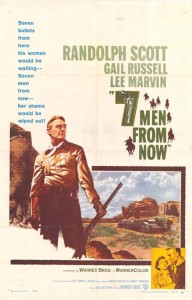
Synopsis:
While hunting down the seven robbers who killed his wife, a former sheriff (Randolph Scott) assists a naive homesteading couple (Walter Reed and Gail Russell) heading west. Meanwhile, Scott discovers that two ex-cons (Lee Marvin and Don Barry) are equally anxious to track down the criminals — and their loot.
|
|
Genres, Themes, Actors, and Directors:
- Budd Boetticher Films
- Gail Russell Films
- Lee Marvin Films
- Love Triangle
- Machismo
- Randolph Scott Films
- Revenge
- Westerns
Response to Peary’s Review:
Seven Men From Now was the first of seven westerns director Budd Boetticher made with leading-man Randolph Scott, and one of five scripted by Burt Kennedy. While it’s not quite as compelling as some of their later outings (Decision at Sundown and Buchanan Rides Alone are my personal favorites, while Ride Lonesome is universally lauded as the best of the bunch), it’s a solid, enjoyable flick in its own right, with — as Peary notes — “interesting character conflicts, good action sequences, and a shootout worth waiting for.” Critics (see links below) are nearly universal in their description of the film — and Boetticher’s style in general — as “lean and spare”, “economical”, “modest in tone and intimate in scope”, leaving “no trace of fat”; indeed, Boetticher makes effective use of every moment, many of which (such as the infamous “wagon scene”) are highly memorable. The performances all-around are solid, but Lee Marvin is especially good — this was the perfect follow-up to his role as “Slob” in Shack Out On 101. Also of note is Gail Russell, looking (appropriately enough for a settler) weary beyond her years; knowing that she would die a premature death from alcoholism just five years later makes her performance here even more poignant.
Redeeming Qualities and Moments:
- Randolph Scott as Ben Stride
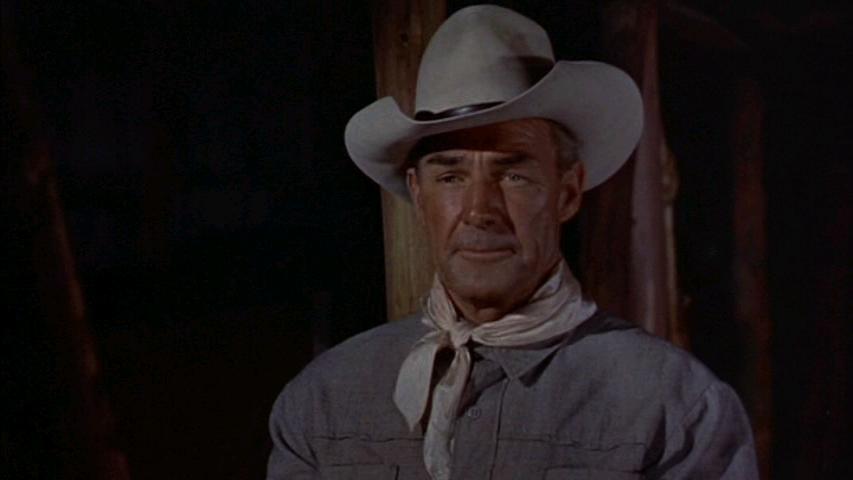
- Lee Marvin as Bill Masters

- Gail Russell as Annie Greer
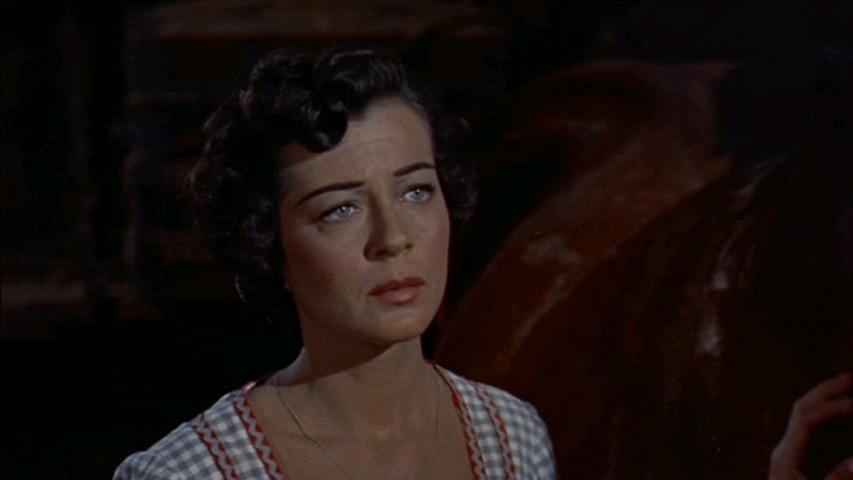
- Walter Reed as John Greer

- The incredibly tense “wagon scene”
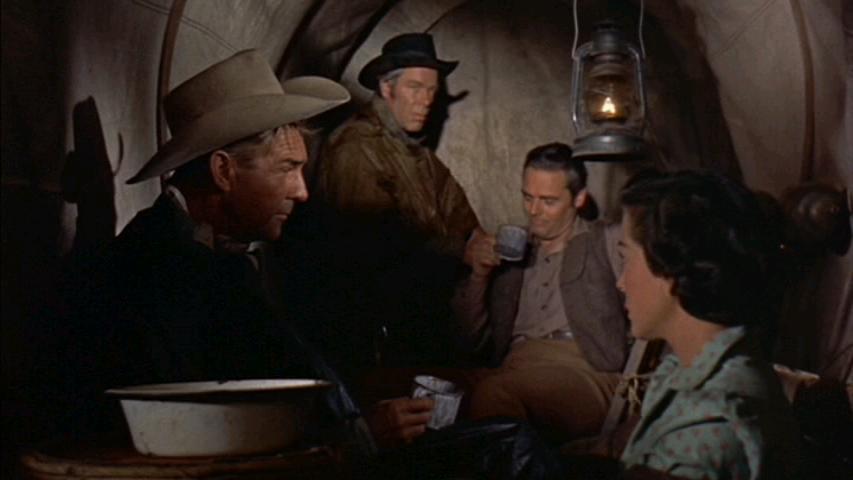
- Gorgeous natural settings
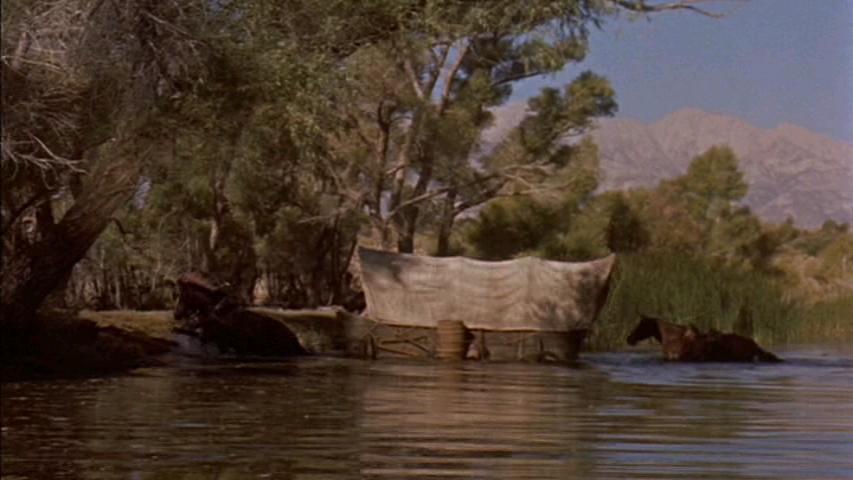
- The well-choreographed final shoot-out
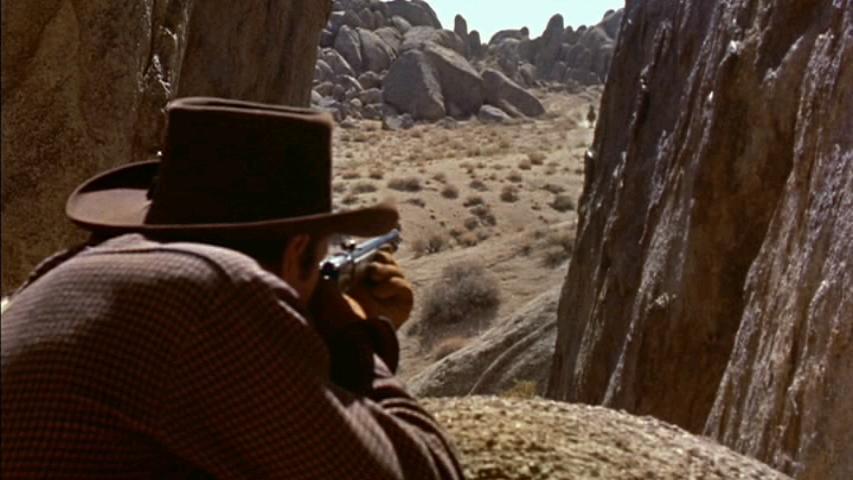
Must See?
Yes. As the first collaboration between Boetticher and Scott, this fine western — in addition to being an all around good show — holds a special place in cinematic history.
Categories
- Historically Relevant
- Important Director
Links:
|
2 thoughts on “Seven Men From Now (1956)”
A must – hoo-ee!, one satisfying flick!
I’d not seen this before. And I’ve documented that I’m not an overwhelming fan of westerns. That said…I do have my favorites – and, most of all, I do like a story well told, regardless of genre. And this one is told well.
The Scott/Boetticher collaborations seem to hold a special place for me. I don’t think I’ve seen them all yet – and they are not films that I consciously think of revisiting. But they are nevertheless the kind I’d be willing to sit through anytime if, for example, someone were to ask. Of the ones I’ve seen so far…they are on the short side, but full; and they always seem to hold me in their grip.
Like several other series films by artists – whatever the genre – I don’t know that I’d recall the plots of Boetticher films just by the titles. There is a certain similarity at work in them. But that hardly matters. When you get into the specifics of each one (it seems), they take on a life of their own.
‘Seven Men…’ is no different. I was genuinely blown away by the subtlety at work here – and by the twists I was not at all expecting.
Does it make a difference that Scott is not called on to be particularly unique in each of these films? Not really. He’s a bit like Clint Eastwood from film to film in this series. But I certainly prefer Scott! He always seems to be doing some kind of different jazz riff (for lack of putting it another way), even though he is essentially called on to stick to the basic blueprint. (Eastwood doesn’t really do that.)
This pic is shot really well by DP William H. Clothier, which often increases the tension.
What ffs treasure most is when they can sit up and take special notice during a film experience. That can be done here.
Not celebrated as much as the other Boetticher and Scott collaborations, but it’s still a damn good Western. Direct yet remarkably textured. Of particular note were the rainy nighttime coffee sequences: the opening campfire where Scott dispatches the first two men, and later in the wagon where Lee Marvin turns in one of the creepier monologues I ever remember seeing from him. Great viewing for film fans.